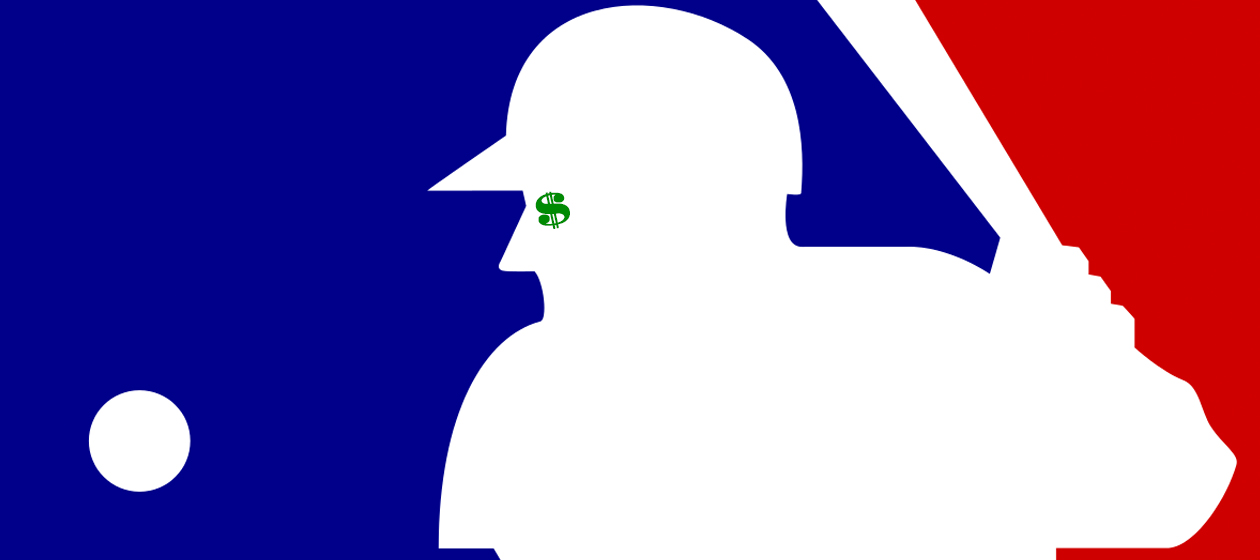How MLB gamed its way into a baseball monopoly
Baseball's monopolistic stranglehold, explained


A free daily email with the biggest news stories of the day – and the best features from TheWeek.com
You are now subscribed
Your newsletter sign-up was successful
In 1922, the Supreme Court handed down a decision that effectively granted Major League Baseball a legal monopoly over professional baseball in the United States — a situation that persists to this day. Here's everything you need to know:
What's the origin of baseball's antitrust exemption?
Early in the 20th century, the U.S. boasted a few professional baseball leagues — namely, the Federal League, the American League, and the National League, the latter two of which partnered to form Major League Baseball. In 1915, the Federal League took the much more established National League to court, claiming that the latter had conspired to monopolize the professional ranks — a violation of the Sherman Antitrust Act, which protected industries from being monopolized by a single company.
The Week
Escape your echo chamber. Get the facts behind the news, plus analysis from multiple perspectives.

Sign up for The Week's Free Newsletters
From our morning news briefing to a weekly Good News Newsletter, get the best of The Week delivered directly to your inbox.
From our morning news briefing to a weekly Good News Newsletter, get the best of The Week delivered directly to your inbox.
The tactic backfired when Judge Kenesaw Mountain Landis — who would later become commissioner of the MLB — held off on announcing his decision for months as the Federal League's coffers were depleted. Meanwhile, the American and National Leagues swooped in and bought out seven of the eight Federal League teams. The Baltimore Terrapins were the last holdout, fighting the NL all the way to the Supreme Court in what became the first of the "baseball trilogy" cases.
What did the Supreme Court decide?
The court's decision in Federal Baseball Club of Baltimore v. National League (1922), written by Justice Oliver Wendell Holmes, Jr., stated that neither baseball games nor the "personal effort" of players fell under the definition of commerce, and therefore, the business of baseball was not subject to the Sherman Antitrust Act. Baseball, even at the professional level, was recreation and entertainment. It was only a game. Despite numerous legal challenges over the years, the ruling still stands.
How has the exemption shaped professional baseball?
A free daily email with the biggest news stories of the day – and the best features from TheWeek.com
It allows the MLB to do all kinds of things that set it apart from the other leagues in the "Big Four" of American sports: the NBA, NFL, and NHL. Because the MLB can operate as a legal monopoly, it's never faced competition from a rival league like the NFL did with the All American Football League in the 1940s and the Donald Trump-backed United States Football League in the 1980s. The antitrust exemption also gives the league the unique power to assign teams exclusive rights to their home market, shielding them from competition from teams looking for a more profitable location. In fact, only one team has relocated in the last 45 years: the Montreal Expos, who became the Washington Nationals when they moved to Washington, D.C., in 2005.
Since players in the minor leagues are employed by their team's major league parent, the exemption also extends to the MLB's control over baseball's farm system. Because of the MLB's freedom from employment regulations, Minor League Baseball players are not classified as full-time employees and their wages often fall at or below the minimum wage. As the only option for athletes aspiring to the majors, Minor League Baseball players have little recourse to fight for higher wages.
Have players fought back?
Indeed they have — but mostly unsuccessfully, at least at first. For players, the exemption manifested in the form of the reserve clause — a standard term in employment contracts that allowed teams to exert an extraordinary level of control. It bound players to teams indefinitely, leaving them with no say in where or when they were traded and with no leverage to negotiate higher salaries. The first major challenge to this system was brought by a minor leaguer named George Earl Toolson in 1953 (Toolson v. New York Yankees). Toolson, a pitcher for a Yankees farm team, was tired of toiling away in the lower leagues and sought to move to another team but was prevented from doing so by the reserve clause in his contract. Toolson took his case to the Supreme Court, but the court asserted that it could only uphold the 1922 law, despite the fact that the MLB had clearly evolved into a big, national business.
But baseball players become free agents all the time now. What changed?
Credit Flood v. Kuhn. The plaintiff was St. Louis Cardinals' star Curt Flood. When the Cardinals traded Flood to the Philadelphia Phillies at the end of the 1969 season, Flood announced that he had no interest in uprooting his family for a team with a poor record that played in a falling-down stadium. He asked Commissioner Bowie Kuhn to declare him a free agent, writing:
After 12 years in the Major Leagues, I do not feel I am a piece of property to be bought and sold irrespective of my wishes. I believe that any system which produces that result violates my basic rights as a citizen and is inconsistent with the laws of the United States and of the sovereign States. [Curt Flood]
Kuhn refused, citing the reserve clause, and in 1972 the case made it to the Supreme Court. By this time, pro baseball, with its broadcasting deals and merchandise sales, was unquestionably a mega-business, a fact that seemed to give Flood the advantage. But once again, the court punted, saying that only Congress could revoke or place restrictions on the MLB's monopoly exemption.
Flood never played again, but his case gave momentum to a movement, led by the Players Association, to free players from the bonds of the reserve clause. The union, formally recognized in 1966, aggressively pursued improved conditions for players throughout the late '60s and early '70s. They achieved a collective bargaining agreement in 1968. Two years later they gained the ability to settle disputes with the league through arbitration, and in 1972, the players led their first strike over pension funds. Finally, in 1976, the MLB and the union agreed to a set of conditions that allowed pros to declare free agency.
What's happened since?
In 1998, President Bill Clinton finally codified into law some restrictions on baseball's monopoly exemption with the signing of the Curt Flood Act, which declared that player contracts were subject to antitrust laws. The law enshrined the gains made by the Players Association and gave baseball players the same protections in negotiating employment contracts that already applied to athletes in other pro sports leagues.
Still, even as players have won more freedom, the league continues to wield very tight control over its franchises. For instance, the city of San Jose recently challenged the MLB after the league blocked a move that would bring the Oakland A's to the city. The A's stadium in Oakland is badly dilapidated, and San Jose had raised $500 million for a new stadium. The problem? According to the MLB, San Jose is part of the San Francisco Giants' territory, and they're not interested in giving it up. San Jose brought a federal antitrust suit against the MLB, appealing it all the way to the Supreme Court.
The court, which famously struck down the trio of cases against the league during the 20th century, declined to hear the case.
